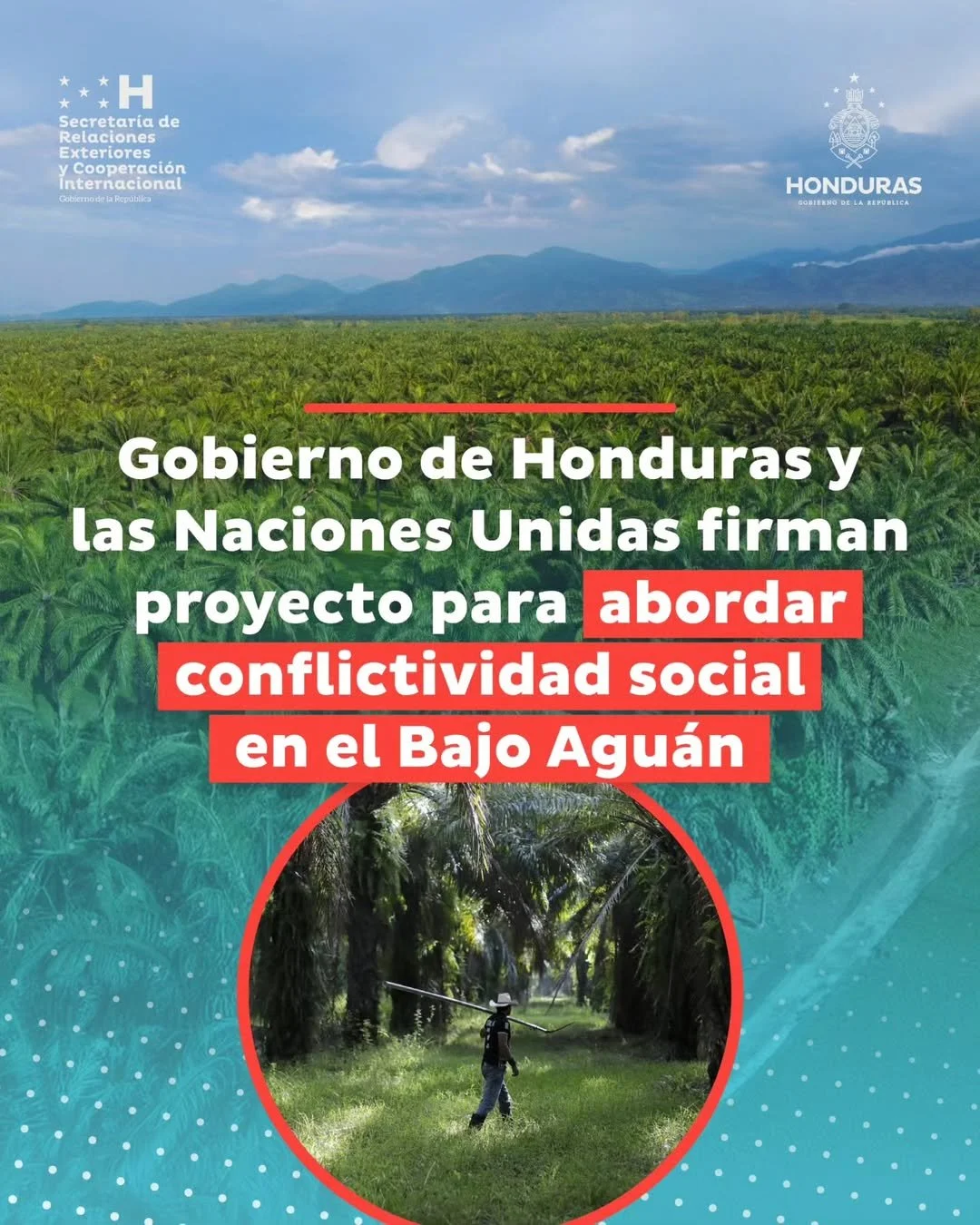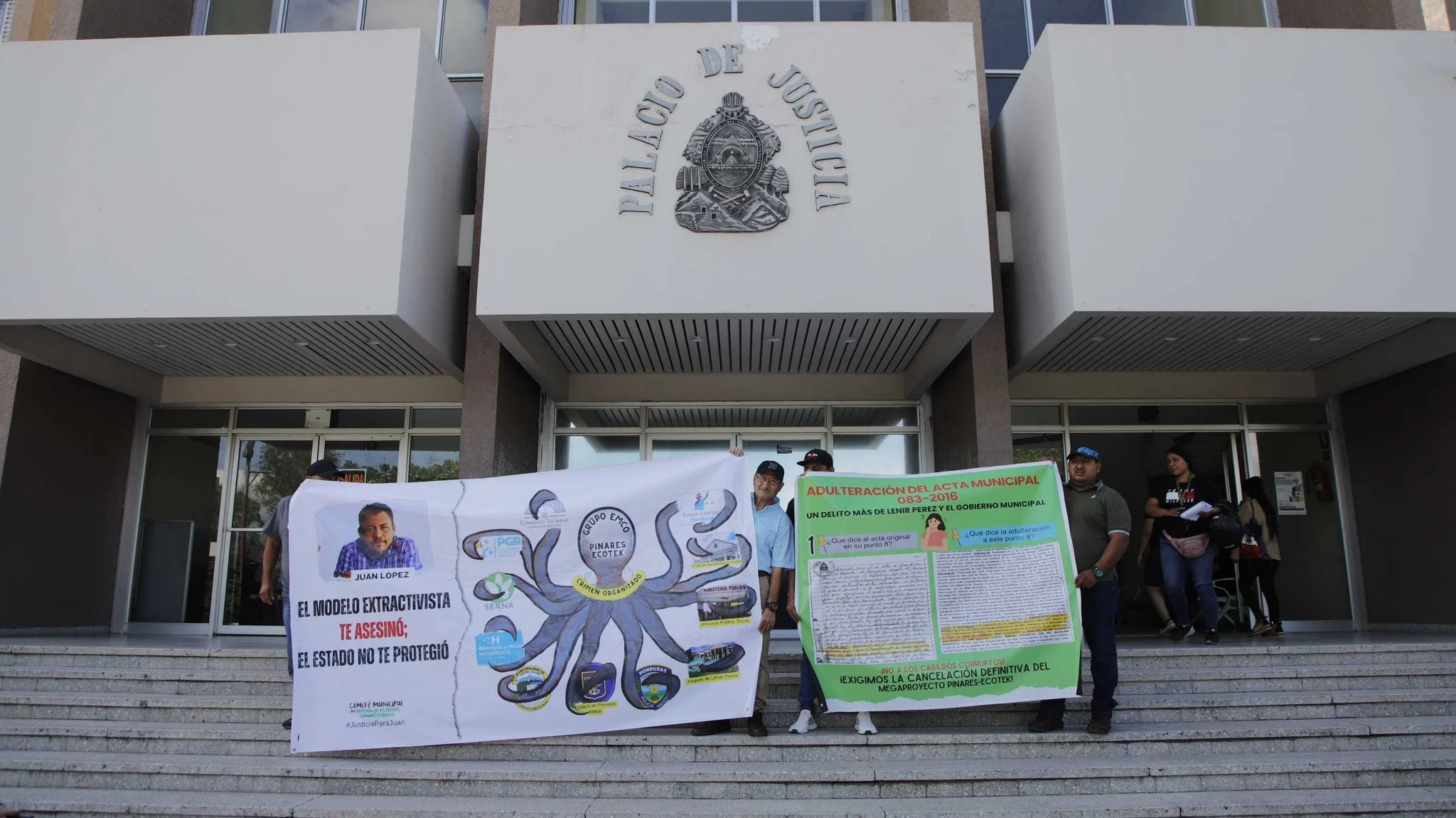Aguán News Alert | April 2025
Photo Credits: Plataforma Agraria.
International Day of Farmer and Peasant Struggles
Tocoa, Colón – During the month of April, the International Day of Farmer and Peasant Struggles was commemorated. This day celebrates the tireless struggle of families, campesino cooperatives and businesses who work the land in Honduras. This day also serves as a reminder of the historical debt the Honduran State has with campesino families in the Bajo Aguan to provide justice for campesinos murdered in the context of territorial defense, the dispossession of campesino families from their Agrarian Reform lands, and the lack of protection for land and human rights defenders.
Latest News
Meeting between the Government and the Agrarian Platform: On April 3, the Agrarian Platform and several Honduran state institutions, including the Property Institute (IP), the Attorney General's Office (PGR), the Human Rights Secretariat, the National Congress, the Supreme Court of Justice, the National Supervisory Council of Cooperatives (CONSUCOP), and the United Nations High Commissioner for Human Rights, met to follow up on the demands of the Agrarian Platform. At the meeting, agreements were reached, including the advancement of the registration and re-registration of cooperatives.
UN Project to Address Conflict in the Aguán: On April 24, the Government of Honduras and the United Nations signed the project "Preventing and Managing Social Conflict in the Bajo Aguán through the Protection of Human Rights and Access to Justice" to address violence against the organized campesino movement in the Bajo Aguán. The project will last 30 months and aims to strengthen Honduran institutions, guarantee the protection of human rights defenders, and prevent further conflict in the area.
Image Credits: The Secretary of Foreign Affairs and International Cooperation
Corruption in Municipal Records: On April 29, the legal representatives of Pinares/Ecotek—José Ernesto Vindel Wainwright and Kenia Patricia Cortes—faced a hearing after being accused by the Special Prosecutor's Office for Transparency and the Fight against Public Corruption (FETCCOP) of having repeatedly used falsified municipal records to fraudulently obtain environmental licenses for the Pinares/Ecotek megaproject. The legal representatives of Pinares/Ecotek acted in complicity with the municipal secretary, Norma Agripina Garcia, who is accused of falsifying public documents for the benefit of Pinares/Ecotek. At a press conference, the Committee demanded that the indictment be extended to Mayor Adan Funez, the person responsible for public administration in the municipality of Tocoa.
Image Credits: Contracorriente.
Historical Context
In the 1990’s, World Bank-led structural adjustment measures transformed the Bajo Aguán region of north-east Honduras from one of the nation’s primary sources of fruits, vegetables and basic grains into an African palm oil monoculture destined for export to insatiable Global North markets. Over the course of this process, thousands of campesinos were dispossessed of their farms to make way for massive palm plantations, owned by a handful of Honduran elite.
Since then, campesino cooperatives have engaged in a multi-decade struggle to recover their land, suffering violent repression by corporate and state entities as a result. The immediate post-coup period was especially brutal, taking the lives of approximately 150 small farmers by 2014. In recent years, many more have been murdered, disappeared, and criminalized. The vast majority of these crimes remain in impunity.





